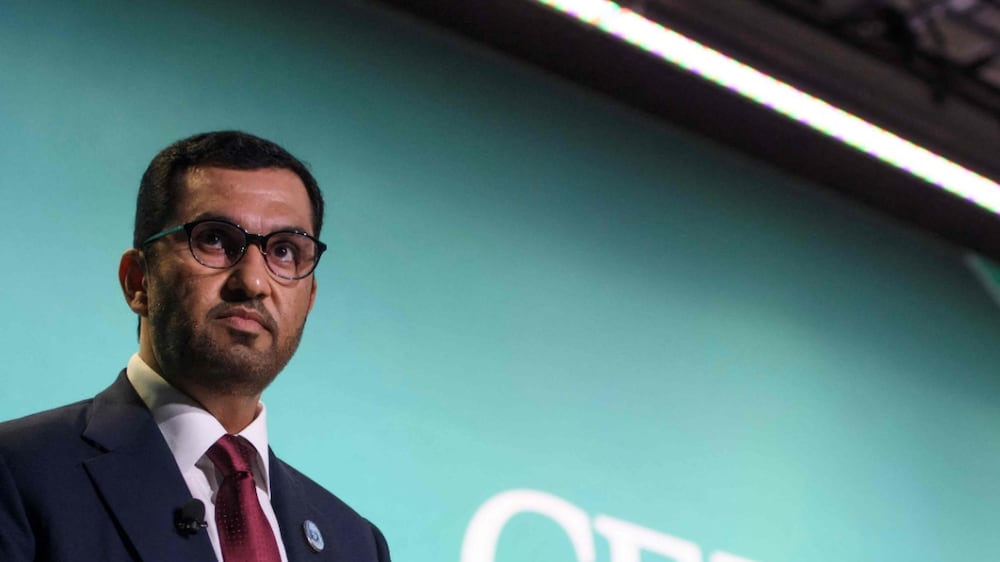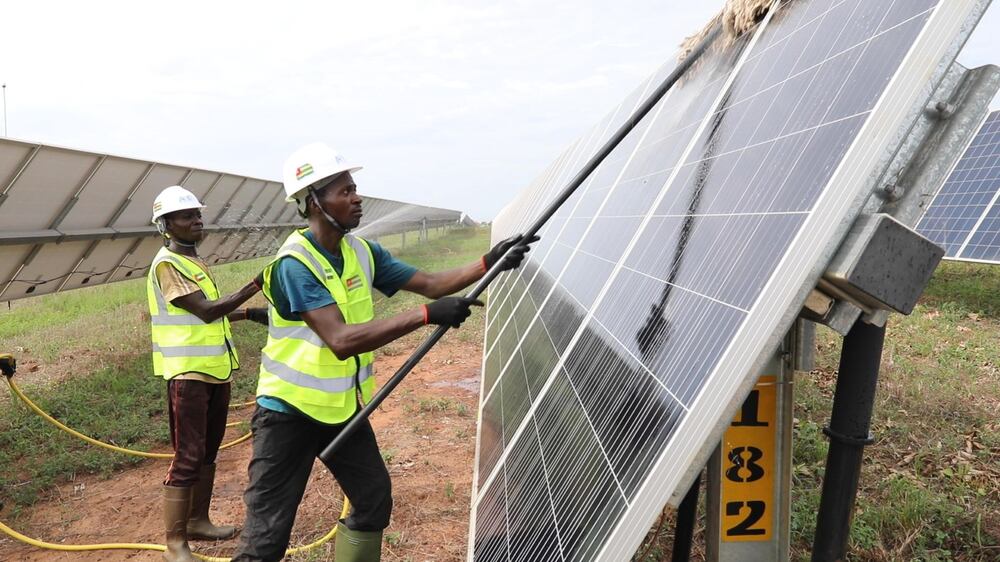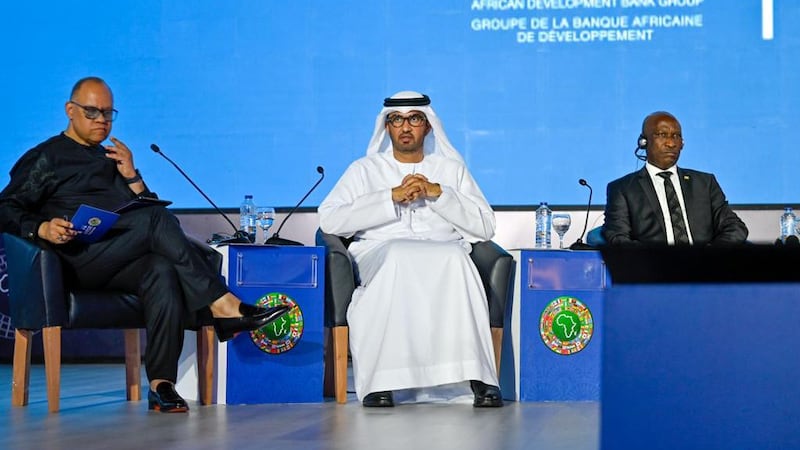Dr Sultan Al Jaber, Minister of Industry and Advanced Technology and Cop28 President-designate, on Tuesday called for a major boost to public and private finance to help Africa battle climate change.
Africa has “huge potential for low-carbon growth and sustainable development”, Dr Al Jaber said at the African Development Bank 2023 Annual Meetings in Sharm El Sheikh, Egypt.
“But one critical challenge stands in its way — and that is the lack of available, accessible, affordable finance. And this lack of finance is putting the world’s climate goals and Africa’s sustainable development at risk,” he said, according to UAE news agency Wam.
“Cop28 is exploring additional mechanisms to supercharge the flow of private finance to Africa.”
The African Development Bank’s 2023 annual meetings are focused on mobilising private-sector financing for climate and green growth in Africa, stressing the urgency of the climate crisis.
As a first step to close this finance gap, Dr Al Jaber called on developed nations to come through with the $100 billion in climate finance they pledged more than a decade ago.
“Failure to do so has undermined trust in the multilateral process, which must be restored,” Dr Al Jaber said.
“There are encouraging signals coming from donor countries on this front, which I hope will soon be followed by concrete action.”
The UAE will host the UN climate conference Cop28 in November, when world leaders will gather to tackle climate change.
The event is expected to be attended by up to 70,000 delegates, including government officials, leaders of global industrial sectors, private sector representatives and climate experts.
Africa has tremendous renewable energy potential — 7,500 gigawatts of solar and 1,800 gigawatts of wind.
Tapping into this clean energy potential would be transformational for the continent, but data from the International Renewable Energy Agency showed that only 2 per cent of global investments in renewable energy in the past two decades were made in Africa.
A lack of adequate finance for tackling climate change in Africa has become dire and is “choking” the continent, African Development Bank group president Akinwumi Adesina said on Monday.
Dr Sultan Al Jaber says this is the decade to provide the clean energy the world needs

Mr Adesina also called out developed nations for not honouring the $100 billion per year climate finance pledge.
“Africa is being short-changed in climate finance. Africa is choking,” he said.
The African Development Bank is spearheading climate adaptation efforts across the continent and has devoted 63 per cent of its climate finance, the highest among all multilateral development banks, it said.
The bank, which is expected to launch its annual African Economic Outlook report on Wednesday, estimates Africa will need $2.7 trillion by 2030 to finance its climate change needs.
Delivering effective climate finance to Africa will help the continent to develop as well as help put the world back on track to achieve the goals of the Paris Agreement, Dr Al Jaber said.
“And it will enable an energy transition that leaves no one behind,” he added.
With regard to renewable energy, Dr Al Jaber said that only 2 per cent of the $3 trillion invested worldwide over the past 20 years have made it to Africa.
“If we can shift the balance on climate finance to Africa, I believe this continent can become a defining force in low carbon sustainable growth,” he said.
While Africa’s 54 countries have done the least to cause climate change, contributing less than 4 per cent of global emissions, they are suffering some of the worst consequences, Dr Al Jaber said.
A Closer Look: Africa’s energy transformation

These include “droughts and famine impacting lives and livelihoods, forcing migration and undermining the biodiversity that African people depend on for their livelihood”.
“At the same time, over 600 million people lack access to electricity and almost one billion lack access to clean cooking fuel,” he said.
To make the transformation progress, the flow of private capital needs to be mobilised, he added.
To accomplish this, fundamental reforms of independent fiscal institutions and multilateral development banks are “required to unlock much more concessional finance, lowering risk, and attracting private capital”, Dr Al Jaber said.
“If we fail to deliver effective climate finance for Africa, many countries will have no choice but to follow a high-carbon development pathway. And that is in no one’s interest,” he warned.
While mitigating climate change is important, Dr Al Jaber said that the gap in adaptation funding is also large.
“Donor countries need to double their commitment to adaptation finance by 2025,” he said.
Highlighting Africa's potential, Dr Al Jaber said the continent could become a hub for renewable energies and a driver for clean growth for the world.
“Finance is the key to turn good intentions into real results,” he said.







